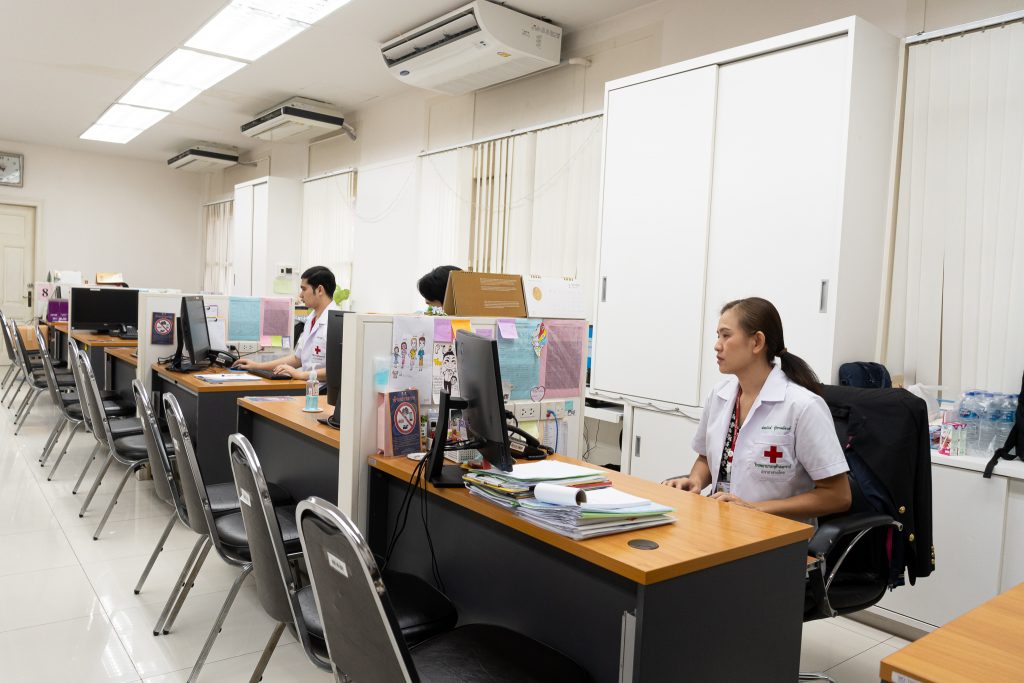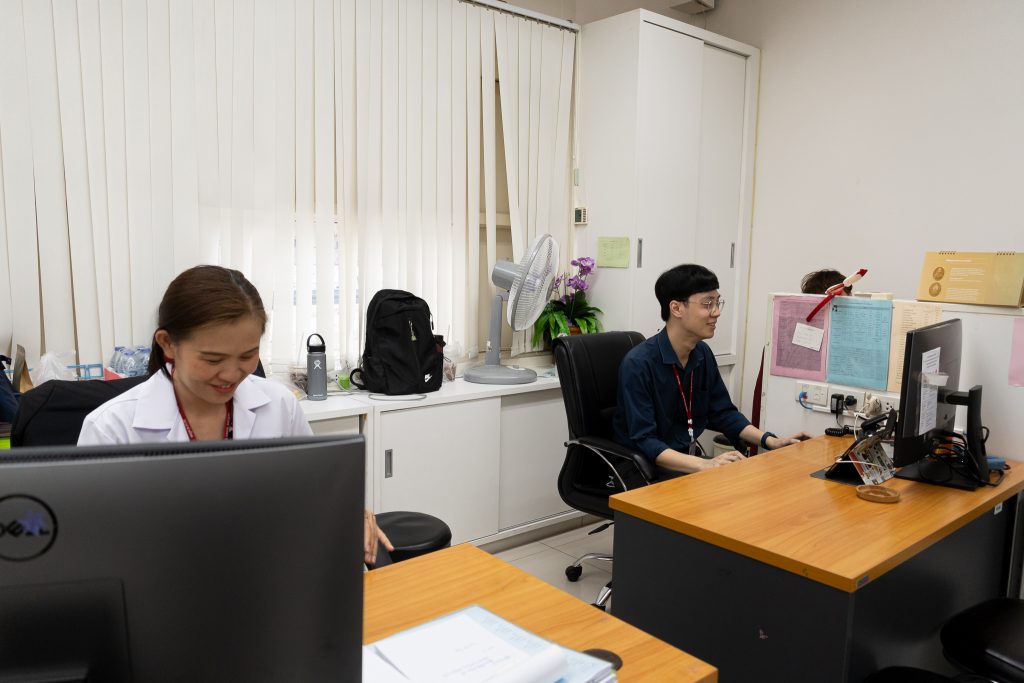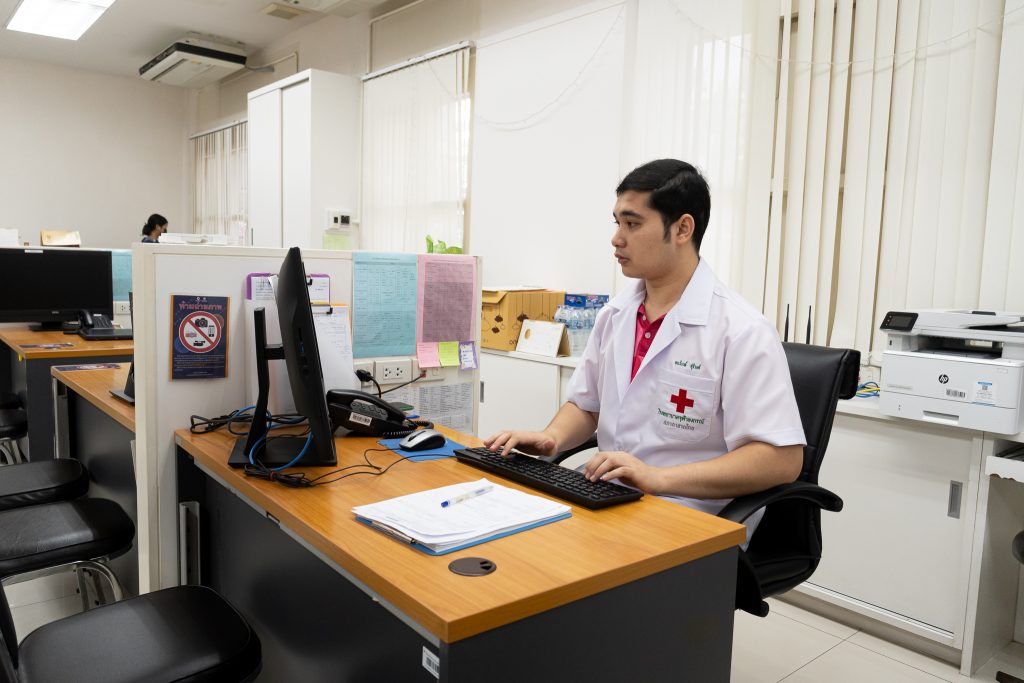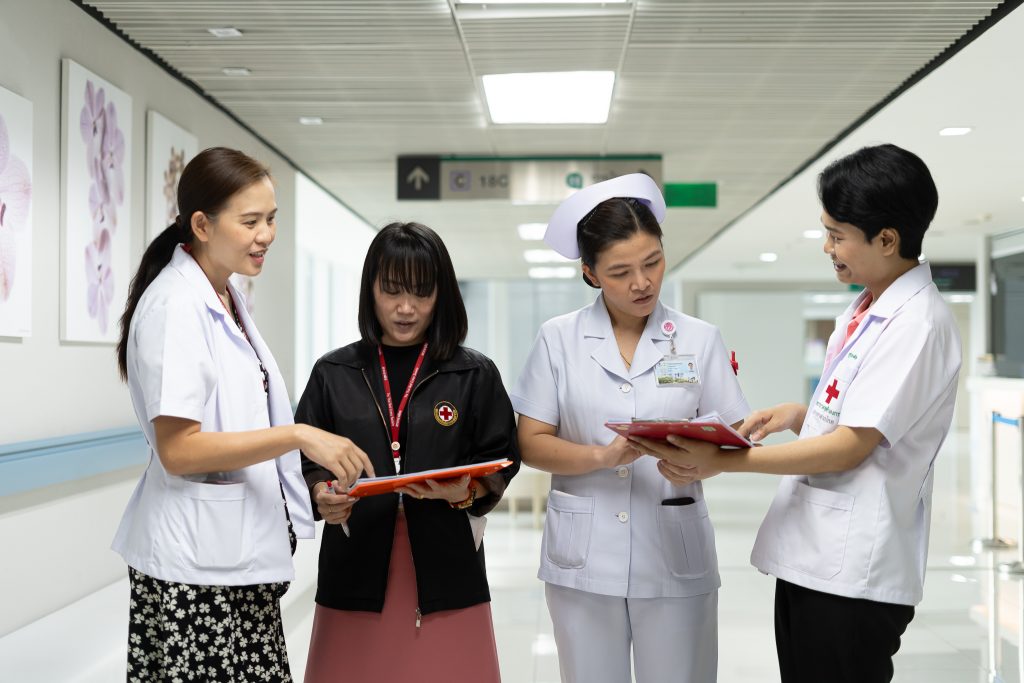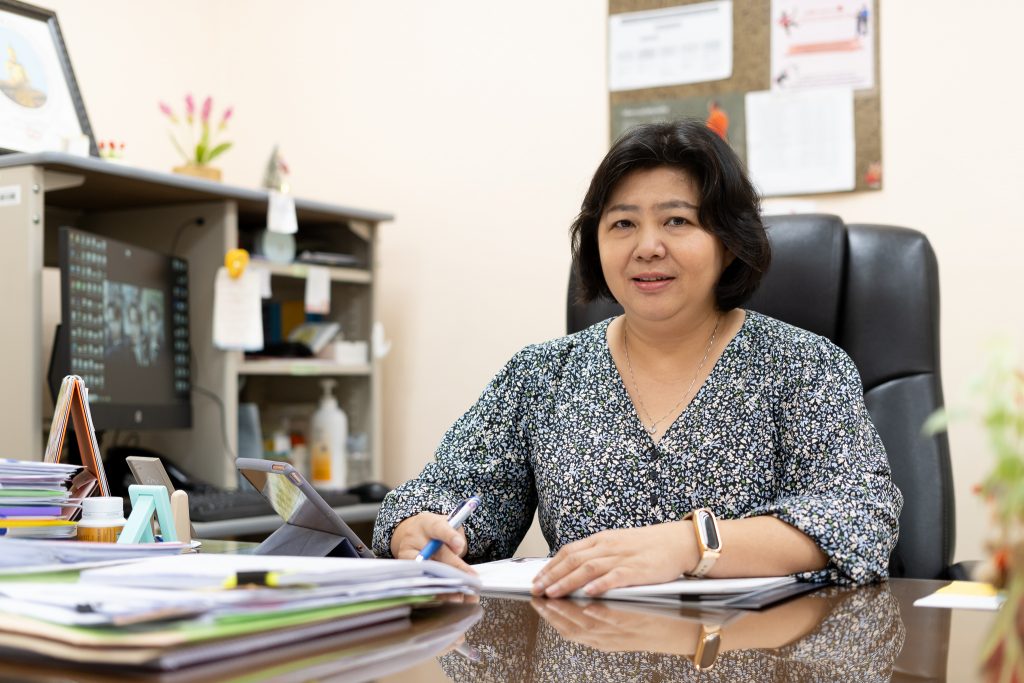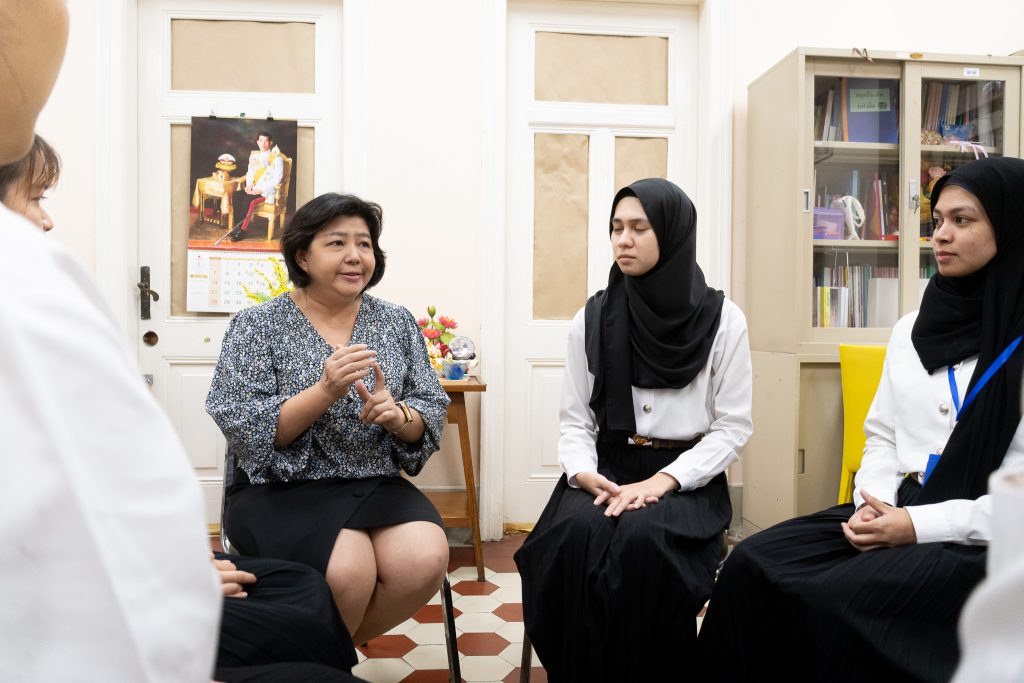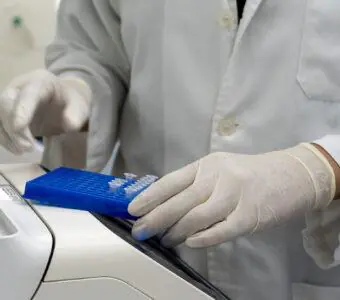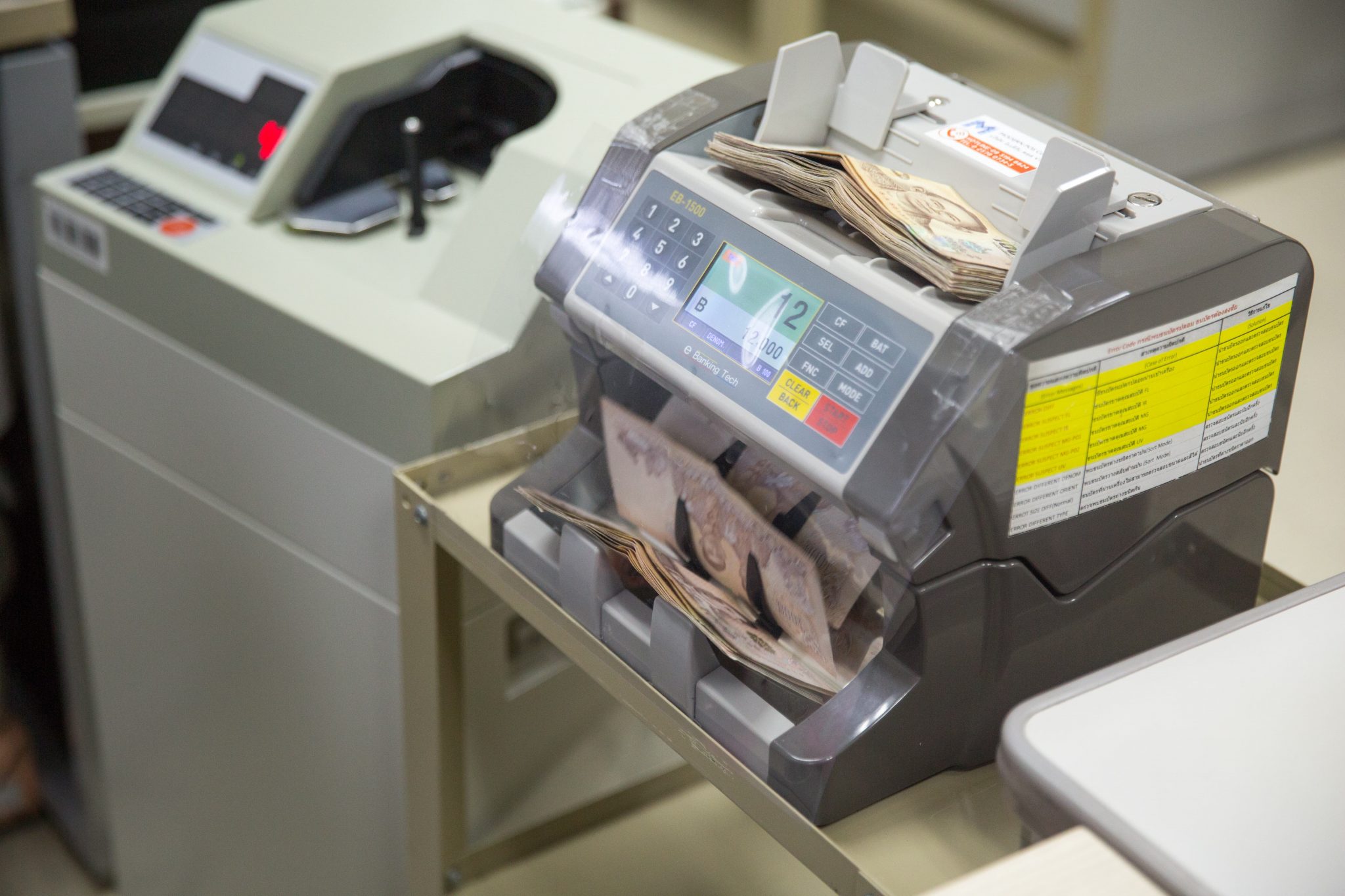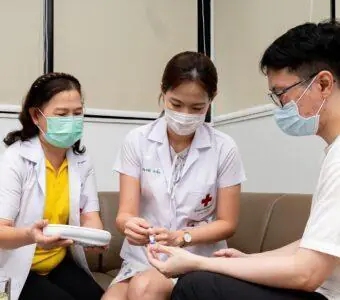The Social Welfare Department of King Chulalongkorn Memorial Hospital, Thai Red Cross Society, was originally named the Social Work Unit, under the Relief and Public Health Department of the Thai Red Cross Society. It was established on April 1, 1965, initially with four social workers. In 1981, the Social Work Unit was elevated to the Social Work Department of King Chulalongkorn Memorial Hospital, Thai Red Cross Society, reporting directly to the hospital director. In 1997, it was renamed the Social Welfare Department of King Chulalongkorn Memorial Hospital, Thai Red Cross Society. Subsequently, in 2004, the department’s name was changed again to the Social Welfare Department. Currently, it has a total of 41 personnel, divided into:
- Licensed social workers, “Registered Social Workers,” certified by the Social Work Professional Council under the Social Work Profession Act of 2013, totaling 36 people.
- Other staff, totaling 5 people.
Heads of the Social Welfare Department from past to present:
1. Mrs. Leungboon Lawalayawat
1965 – 1981
2. Mrs. Rattana Mukharakosa
1982 – September 2003
3. Ms. Pojana Wanichsenee
October 2003 – September 2005
4. Mrs. Renoo Poosuk
October 2005 – September 2009
5. Mrs. Chalida Uthaichalerm
October 2009 – September 2020
6. Ms. Weeramon Chanratanadee
October 2020 – Present
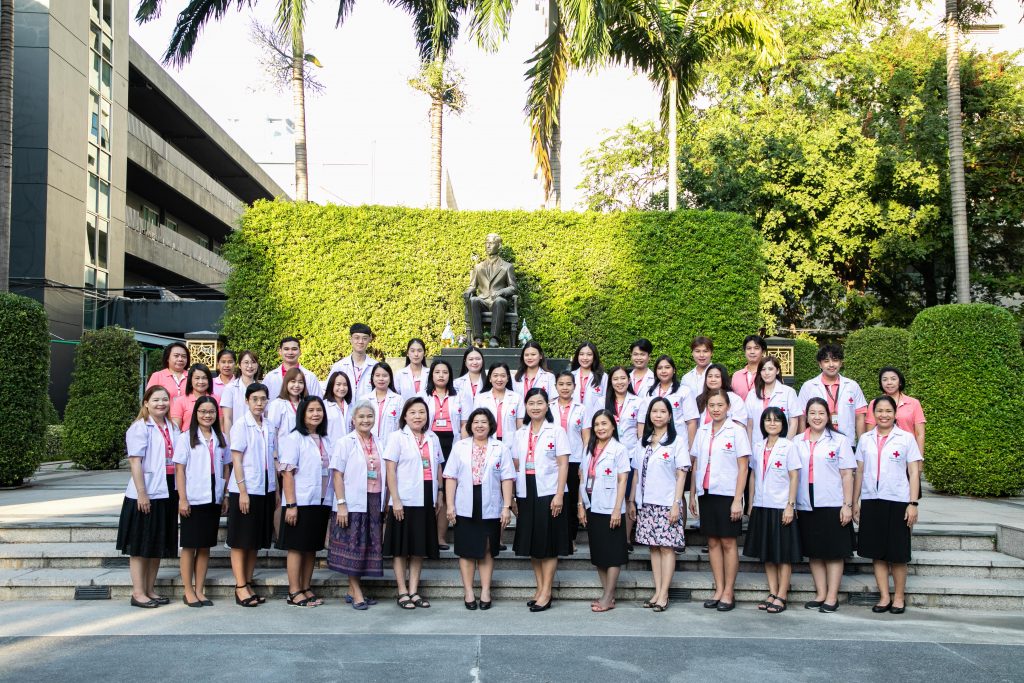
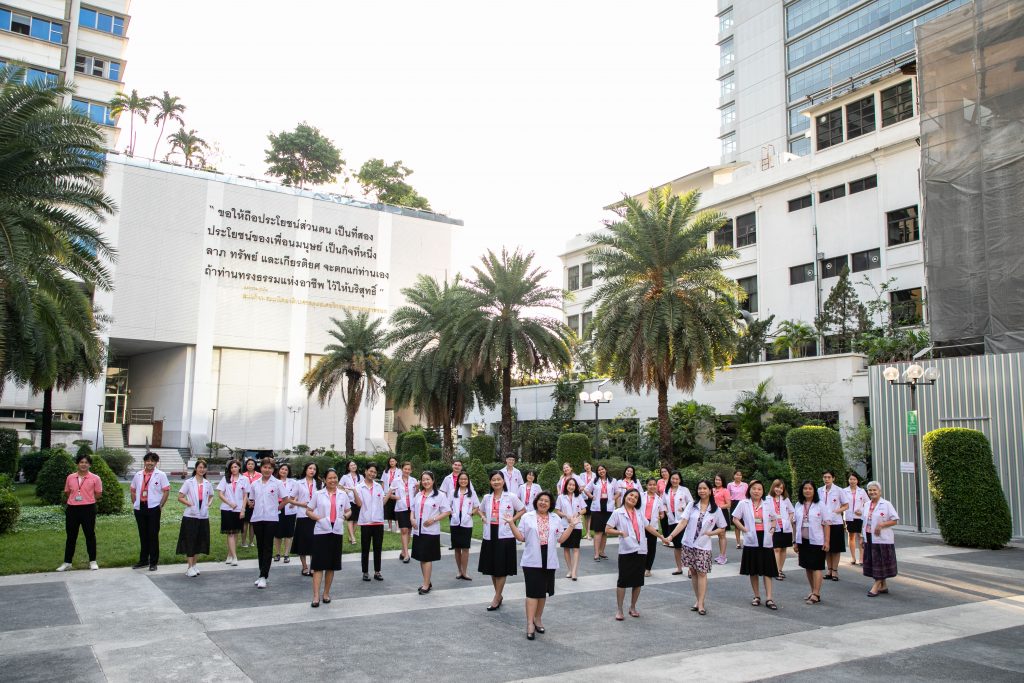
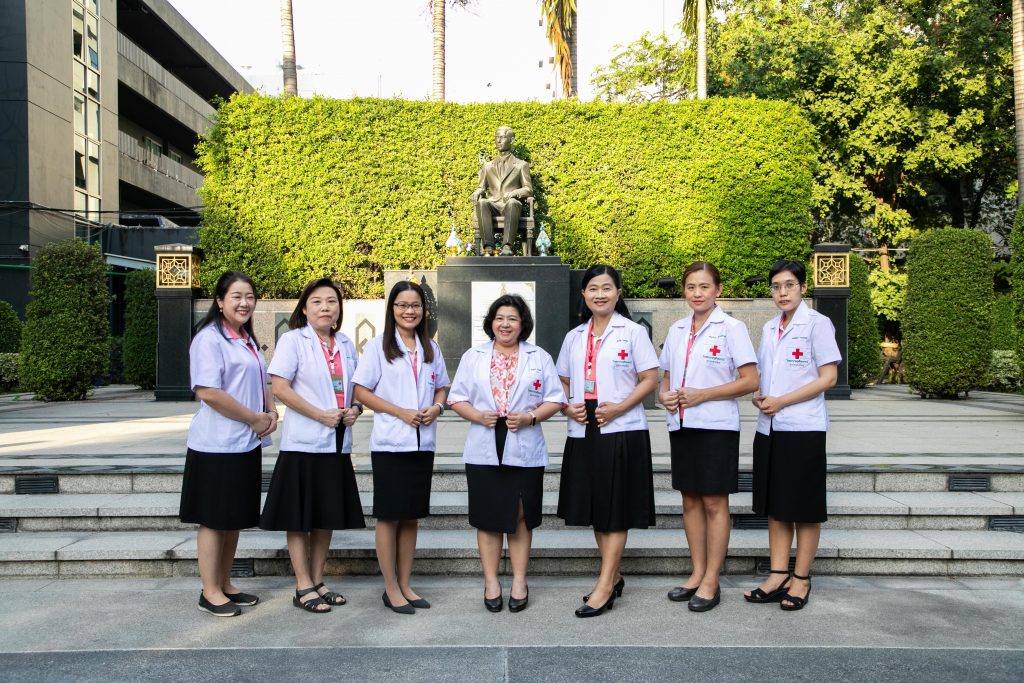
Obligation
The Department of Social Welfare aims to become a prototype institute for medical social welfare services with international quality and ethical standards.
Mission
- Provide social, economic, psychological, and spiritual services to clients and their families.
- Promote and develop academic work in social work and social welfare to gain international recognition.
- Manage the organization efficiently and with good governance.
Support Activities
Development Strategy: SMART Social Work
The department focuses on advancing the social work profession to effectively support target groups through SMART Social Work principles:
S Skill Prominent skills (ability to work effectively)
M Morality Emphasis on ethics (care for vulnerable groups)
A Adaptability Embrace change (learn new things)
R Research Enhance research (data collection and application)
T Teamwork Value teamwork (collaborative work and network expansion)
Number of staff: 41 social workers — 36 licensed social workers whose licenses are granted by the Social Work Professions Council under the Social Work Professions Act, B.E. 2556 (2013) and 5 support staff. The Department’s operations are divided into three groups.
1. Services. Provide preventive, corrective, healing, rehabilitative services and morale support to patients on an individual and group basis. Manage and allocate resources to alleviate problems and rehabilitate patients. Promote establishment of support groups for mutual assistance among patients.
2. Academic works. Promote the exchange of knowledge, create social work research and innovation, present academic works and providing students with the opportunities to gain work experiences from training sessions with professional social workers to prepare them for future career.
3. Administrative functions. The Department’s administration is carried out by a Social Welfare Committee based on the principle of good governance and an emphasis on personnel participation to create a positive work environment.
Roles and Responsibilities of Social Workers:
1. In working with patients and families
Social workers collaborate with the healthcare team in a multidisciplinary manner to provide comprehensive care for patients, addressing their physical, mental, emotional, and social needs. This ensures that patients receive the most effective medical treatment and can return to live healthy, quality lives within their families and communities. In some cases, social workers assist in care planning with patients and their families even after treatment ends, conducting home visits for follow-up and evaluation, as well as adjusting the living environment to promote health and well-being. This helps patients to fully rehabilitate both physically and mentally. The roles in providing services to patients and families include:
1.1 Physical and Mental Health
Social workers utilize social work processes, including individual and group social work, to assess and diagnose social issues. They plan interventions with patients and families, offering assistance in prevention, problem-solving, risk monitoring, and rehabilitation through counseling, support, empowerment, coordination of referrals, and protection of clients’ rights. They work alongside the multidisciplinary team in sharing and receiving information and in planning patient care. Examples include:
- Assessing the readiness of patients awaiting organ and bone marrow transplants
- Programs for facial and cranial deformity correction
- Programs for improving the quality of life of chronically ill children
- Care programs for patients with Parkinson’s disease, epilepsy, new kidney patients, bone marrow patients, and diabetes patients
1.2 Social Support
Social workers promote and support the mental well-being of patients and their families, empowering them to be self-reliant within their family and community. They also seek social networks for referring clients to appropriate services, protecting the welfare of children, families, and vulnerable groups in society to prevent and monitor potential issues. Examples include:
- Initiating the “Wednesday Friends Club” (for HIV-positive individuals)
- Working with centers of excellence in community service, such as organizing Stroke Day and Candlelight Vigil Day
1.3 Spiritual Care
Social workers also focus on the spiritual dimension, considering patients’ and families’ religious beliefs and the psychological needs that arise from those beliefs. Providing services that meet these needs is essential in holistic health care, with the patient being the primary focus. Examples include:
- End-of-life care programs in collaboration with the multidisciplinary team
- Organizing remembrance days for the deceased
2. Academic and Learning Development
2.1 Academic Services
The Social Welfare Department offers academic social work services, serving as a place for study visits and training that provide both practical knowledge and experience in medical social work to social work students and interested parties from within and outside the country. The knowledge developed by the department can be extended and exchanged with other external organizations. Examples include:
- Collaborative projects with the Faculty of Social Work, Thammasat University, to develop specialized training courses for medical social workers
- Creating and developing training programs for target groups in society, such as informal counseling, life skills for workers, heart and vascular disease prevention programs, and end-of-life care social work specialization
2.2 Staff Development
The Social Welfare Department also organizes activities to promote the quality of life for its staff and the broader community. Examples include:
- Ongoing staff development programs for over 30 years
- Proactive health promotion activities to reduce the risk of disease among staff
- Internal relationship-building activities, New Year’s celebrations, retirement ceremonies, etc.
3. Organizational Activities
The department also promotes a positive image for King Chulalongkorn Memorial Hospital through well-known projects such as “CHULA’S DIAMOND,” a fundraising project to help underprivileged patients receive medical care. This project began with the sale of a small book of royal compositions in 2013 and has since included annual charity events, starting with the first almsgiving for poor patients at Wat That Thong Royal Monastery in 2015.
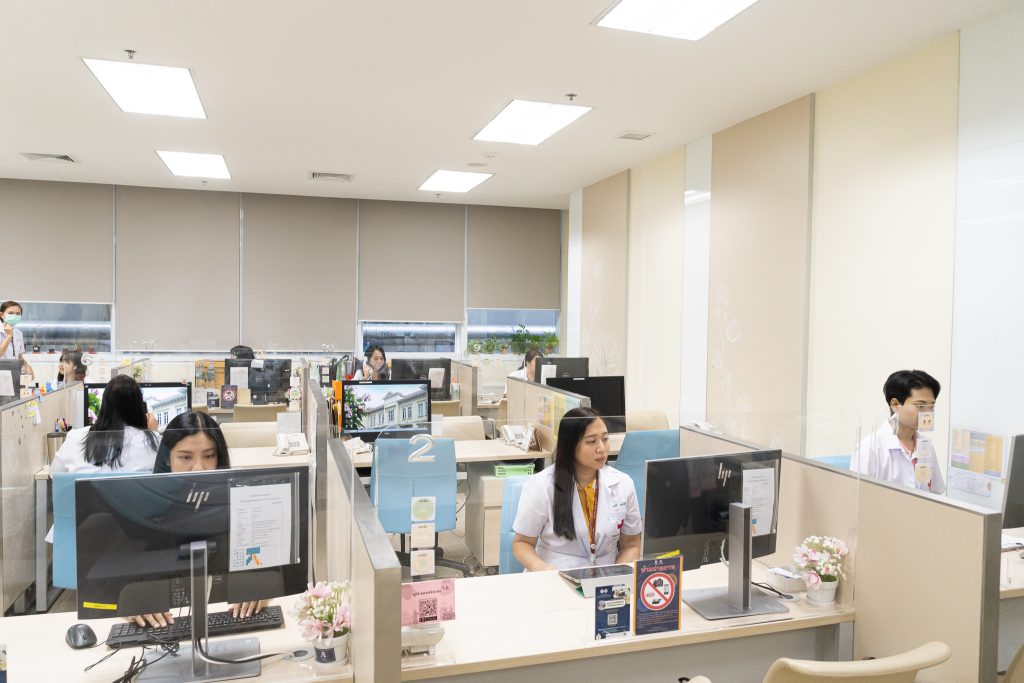
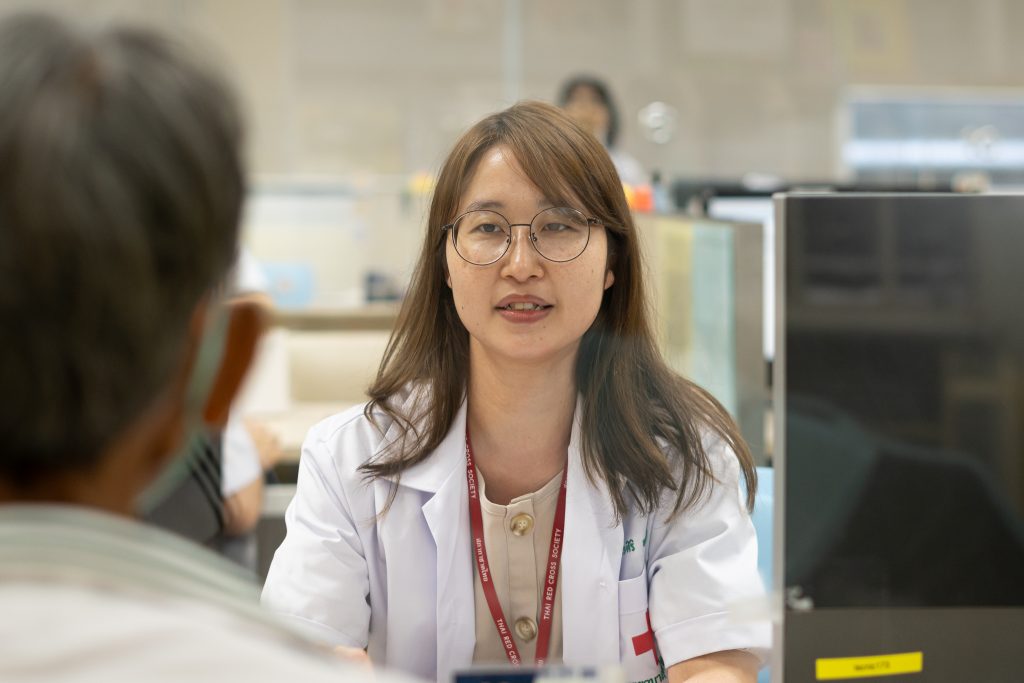
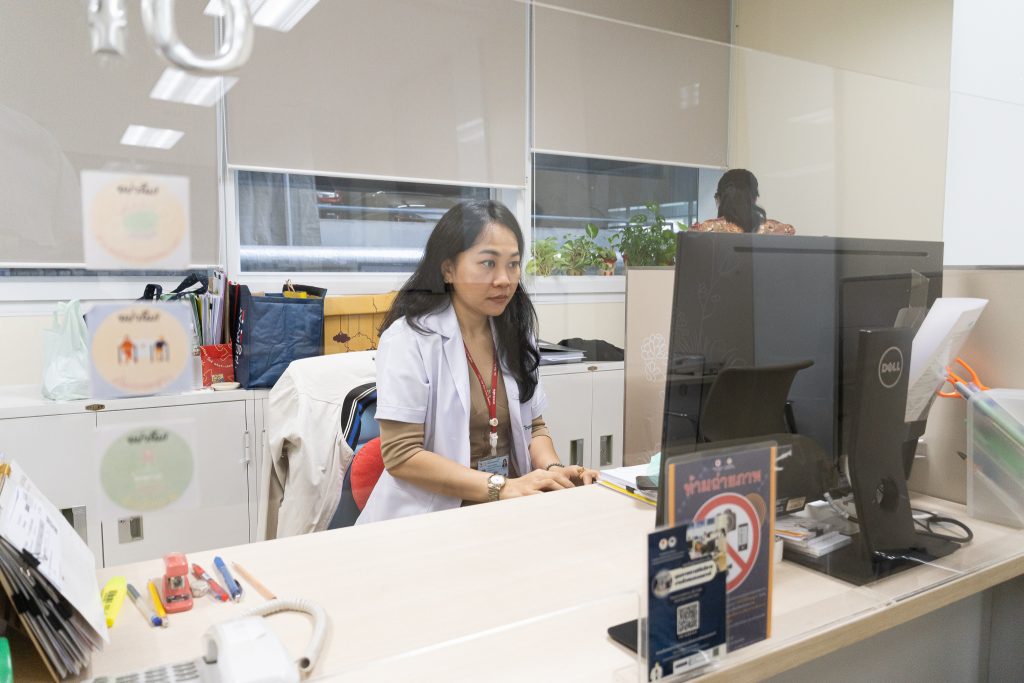



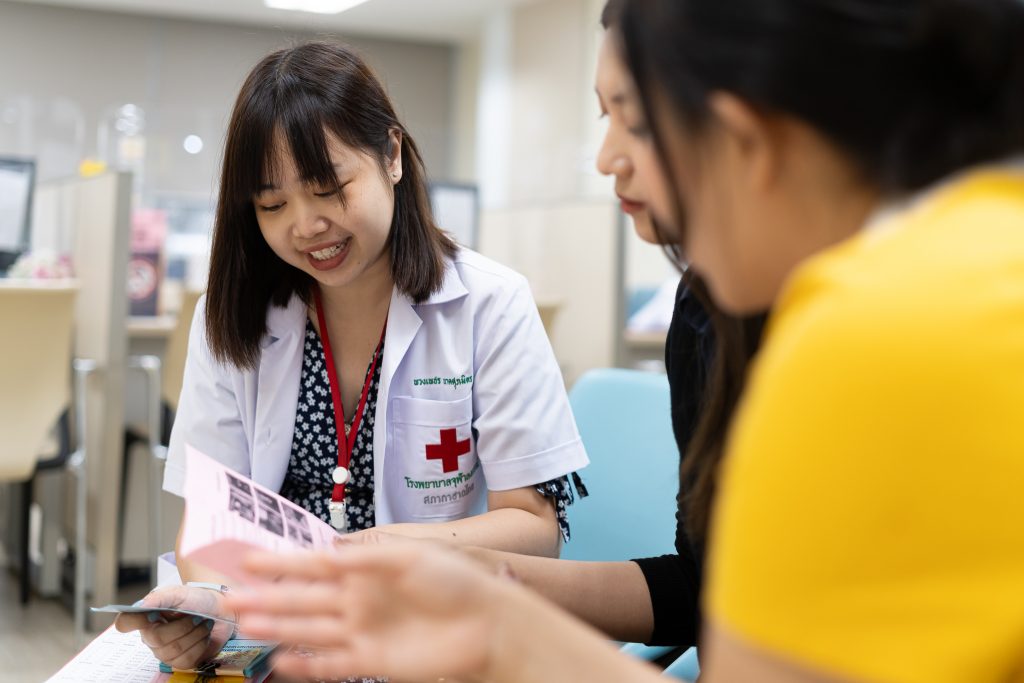
Pride and Recognition
Due to their dedicated service to patients, the Professor Prakorn Angsusing Foundation has recognized the following social workers from the Social Welfare Department at King Chulalongkorn Memorial Hospital, Thai Red Cross Society, with the Outstanding Social Worker Award:
- Mrs. Rattana Mooktharakosa: Awarded in 1987
- Ms. Weeramon Chanratanadee: Awarded in 2006
- Mr. Kamolsate Kengkanruea: Awarded in 2007
